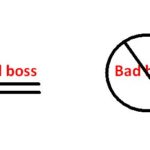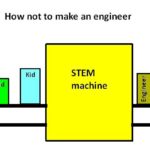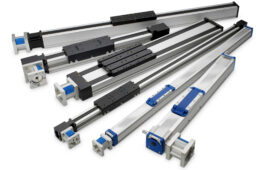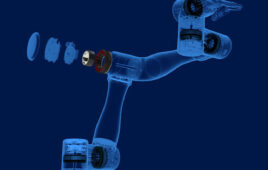Leland Teschler, Executive Editor
[email protected]
On Twitter @ DW_LeeTeschler
Engineers who do electrical work may be familiar with Mike Holt whose website (mikeholt.com) specializes in educational material mainly devoted to deciphering the National Electrical Code.
Holt also hosts a forum where someone recently posted this query: Should I get my  PE license? I meet all the requirements…The pay bump is tempting but I feel I will be thrown into the deep end and expected to swim….I have four years’ experience in commercial electrical design. However, the most engineering I’ve done is lighting design, voltage drop, space planning, arc flash studies, TCC coordination, IECC code compliance.….I feel like the vast majority of my experience is in drafting and creating construction documents….I guess I’m afraid of the “You’re a PE, what do you mean you don’t know this?!?” conversation….Should I….wait until I’m confident as an engineer?
PE license? I meet all the requirements…The pay bump is tempting but I feel I will be thrown into the deep end and expected to swim….I have four years’ experience in commercial electrical design. However, the most engineering I’ve done is lighting design, voltage drop, space planning, arc flash studies, TCC coordination, IECC code compliance.….I feel like the vast majority of my experience is in drafting and creating construction documents….I guess I’m afraid of the “You’re a PE, what do you mean you don’t know this?!?” conversation….Should I….wait until I’m confident as an engineer?
As you might suspect, the post has received a lot of comments. Most of them have a “just do it” tone to them similar to this one: I got my PE license years ago even though I thought I might never need it because I was working for a huge company with a bazillion engineers. When that company kicked me to the curb I was…glad I had secured my license. It opened doors for me that would have otherwise been closed off. Get it. Get it now. You will always have the option of not using it.
And like this one: I received my license in the mail about 8 weeks ago. I have never felt more accomplished or proud of anything in my life. Take the exam.
The writer’s concerns about the implied competence of a PE license seemed to have hit a particular nerve, judging by the number and tenor of the responses. This is not surprising. A lot of the people I went to school with back in the dark ages hesitated to take the Engineer in Training part of the PE exam for the same reasons. But for us, waffling over the EIT exam involved a lot more than self-doubt about our abilities. At least for some of us, it had to do with the anxiety over the interactions with our more experienced colleagues. Even on this point, responders on Holt’s forum provided good advice.
One put it this way: I try to stay out of conversations that aren’t part of my skill set. When I can’t (sub-consultant coordination meetings), I keep my mouth shut until the topic comes around to my wheelhouse. Otherwise, I never apologize for my ignorance, which is always curable. No one can know everything. “Stupid,” on the other hand, I sometimes have to apologize for.
Another was more succinct: No one, not even a PE, not even me, knows it all. Repeat after me: “I don’t know offhand, but I can probably find out.”
The back-and-forth on the forum also exposed what seems to be an urban myth: That PE’s are basically paper pushers. PEs on the forum were quick to correct this misconception. Said one, There is no “administrative side” to being a PE, per se….It all depends on the road you choose. What you’re thinking of is engineers who have moved into project management….There you have to worry about schedules, budgets, manpower loading, resource availability, etc.…Staying on the design side can have its own stresses, but usually once you hit the door, the day is done.
But the most compelling argument I saw for getting a PE consisted of three short sentences: Having a PE license will open doors that would otherwise be forever closed to you, but which of those doors you pass through is entirely up to you. Picture yourself 20-30 years from now. Are you more likely to regret not getting your license when you had the chance, or (to be glad) that you got it?
True and well said. DW
You may also like:
Filed Under: Commentaries • insights • Technical thinking, Trends









Reader Ray Drago makes this comment: Way back when I was in my senior year of engineering undergraduate school (1966 – City College of the City University of New York) we were given the opportunity to study for and take our Engineer In Training (EIT) which was at that time the first step in getting a PE license. The same question as discussed in your column came up among us almost engineers. We were told by an “older” practicing engineer, who was also a part time professor (my favorite kind of engineering professor as they were also “doing” engineering while they were teaching engineering!), that we would be very well advised to get our PE as soon as possible so that we have it when we actually need it later in our careers and while taking tests was still fresh in our experience. Many of my fellow senior classmates simply decided to wait until they needed it before getting their PE. This professor disagreed with that approach and he was indeed correct. I took the EIT then, after the requisite time working as an engineer, I took the PE exam and obtained my PE license. After a long career in the aerospace world (designing helicopter gear systems for Boeing, which did not require that I have a PE license) I retired to a second career in consulting. This consulting practice also includes occasional Expert Witness assignments related to failures and personal injury. Some of these require testimony in court in front of a jury. During the initial stages of such testimony, the opposing attorney will often question the Expert about his experience and qualifications. One question almost always asked is “Do you hold a Professional Engineers license?” A negative answer is seen by the jury as an indication of a lack of qualification. An affirmative answer to that question is often followed by “When did you obtain your PE?” This is a critical point. The jury is much more likely to consider the answer “I obtained my PE license 52 years ago and have been practicing engineering since then” much more an indicator of qualification than “I obtained my PE license 3 months ago” (which the questioning attorney will likely point out was just in time for this trial).
So… The last paragraph of your column is, from my own personal experience, very much on the mark! — Raymond J. Drago, P. E.